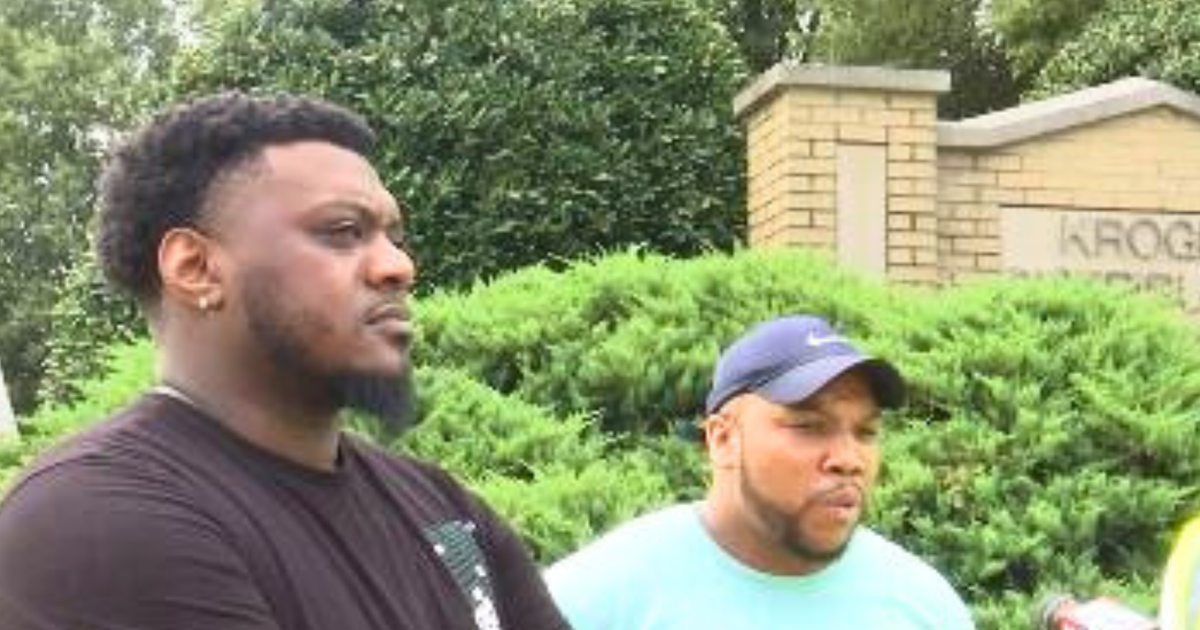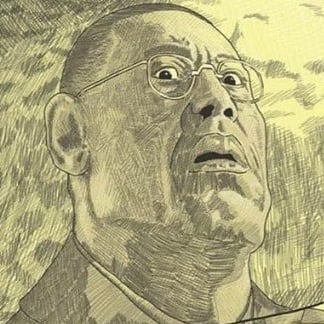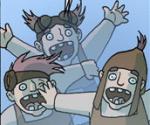“Them guys said he was dripping in sweat. Them guys said that guy was asking for water,” said Teamster 667 Union Chief Maurice Wiggins. “He did walk to produce a couple of times to cool off, and that’s where he ended up passing at, in the produce section on the dock in front of all his coworkers.”
The union explained that workers get a 30-minute lunch break and 15-minute breaks every two hours. Leaders stressed that during extremely hot weather, they need more.
I hate that the heat is seen as something you can just tough out without proper breaks. A body can only take so much.
His supervisor and those in charge of writing this policy at Kroger should be charged with manslaughter. In the heat we’ve been dealing with, especially this summer, limiting breaks in which a worker can cool down and hydrate is aggressively cruel and obviously deadly. A worker can’t will themselves to overcome basic thermodynamics. Workers should always feel empowered by support from their direct supervisors to take breaks when they need them, regardless of company policy. I don’t care if some jerk abused the system once, no company’s profit is worth a life.
I kicked people out of my kitchen because they weren’t sweating enough (first sign of potential heat stroke) over a decade ago. I can’t imagine not giving people breaks in this heat. And food service doesn’t have “required breaks,” which is why I made people take them.
Most legal action will not involve the direct supervisor, and it probably shouldn’t. A direct supervisor could have stepped in here and possibly made a difference. However, the idea that a direct supervisor will by design know when to violate company policy in order to safeguard an employee is not feasible… The company managers and those who are responsible for implementing state laws for protecting employees need to be held accountable. Direct supervisors should be documenting the policy issues that are a problem, and helping the union stewards to get the policies changed. In a perfect world… Unfortunately most companies hate working with unions and managers are too removed from the issues that are harming employees. The current system sucks.
However, the idea that a direct supervisor will by design know when to violate company policy in order to safeguard an employee is not feasible.
This just is not true.
Any halfway competent safety policy, BY DESIGN, allows anyone to stop any work whenever they reasonably judge that work to be unsafe. If that company doesn’t have policy designed as such they should be held criminally liable for the inevitable harm that will result. There is no excuse for any supervisor to not put employee safety at the very fucking top of their priority list, regardless of policy. Anything less is just making excuses. Anyone that puts company policy above community and worker safety deserves to bear the responsibility of their decisions or lack of action when in a position of authority. No company policy is above basic humanity.
It’s 100% true. You can not count on a supervisor BY DESIGN to violate policy whenever it may become necessary. Its a recipe for a fatality. In specific circumstances the supervisor should recognize when the situation no longer is covered by the intent of the policy and act. But expecting a supervisor to violate a policy BY DESIGN is inherently flawed, and hence will not translate into actionable legal accountability.
INCOMING HUGE QUOTE THAT THIS COMMENT REMINDED ME OF:
But first, context. You know if these guys had just refused to work in unsafe conditions they’d be in violation of their contract and get fined. But the people making them work in these conditions get nothing.
Stars around the super relevant part, but the full quote is worth a read. The whole speech, really, but i don’t expect people to listen to a 45m speech just because a lemmy comment told them so. ————————————————————
…I think that reveals something about the hidden class dimensions of our public policy; our grocery bills are determined, the policies, determined by people, who themselves never go to supermarkets.
Our health policy is written out y people who never have to sit for 2 hours in a clinic or an hour in a doctors office.
Our transportation policy is made by people who never have to wait for a bus or look for a parking space, they’ve got helicopters and linos to hurry them away.
Our education policy is made by people who never have to send their children to public school, they send them to private schools.(like the governor of my blue state).
Our daycare system, or lack of, determined by people who use private governesses and Nannies, and then go off to Smith College as Barbara Bush did, and lectured to the students there about not being so concerned about accomplishing in your careers and understand that the real joy and satisfaction is in the working and nurturing of children…
***… occupational safety laws are made by people who never have to work in a factory or mine. The Supreme Court has ruled that wildcat strikes are illegal, a “violation of contract.” In coal mines , wildcat strikes are the workers only defense against occupational hazards that can be disastrous in a day. You’re going down a mine and you see a foreman detach an alarm wire, that rings the alarm if there’s too much smoke buildup, because he’s got a quota to meet that day and he doesn’t want to stop for smoke buildup, so you stop and go on wildcat strike. ***
Well, the Supreme Court, none of whom have been NEAR a factory in their lives, or NEAR a mine, and wouldn’t know one end of a mine from another, legislate and say, “as long as there’s a grievance procedure (grievances take a week, two weeks, a month….)That wildcat actions are a “violation of contract and the union must be fined.”
You see? The policy is being made by people who don’t experience the thing.
-Michael Parenti, transcribed by hand from a random speech
If those every 2 hours breaks were every hour, that life could have been saved
deleted by creator
deleted by creator






